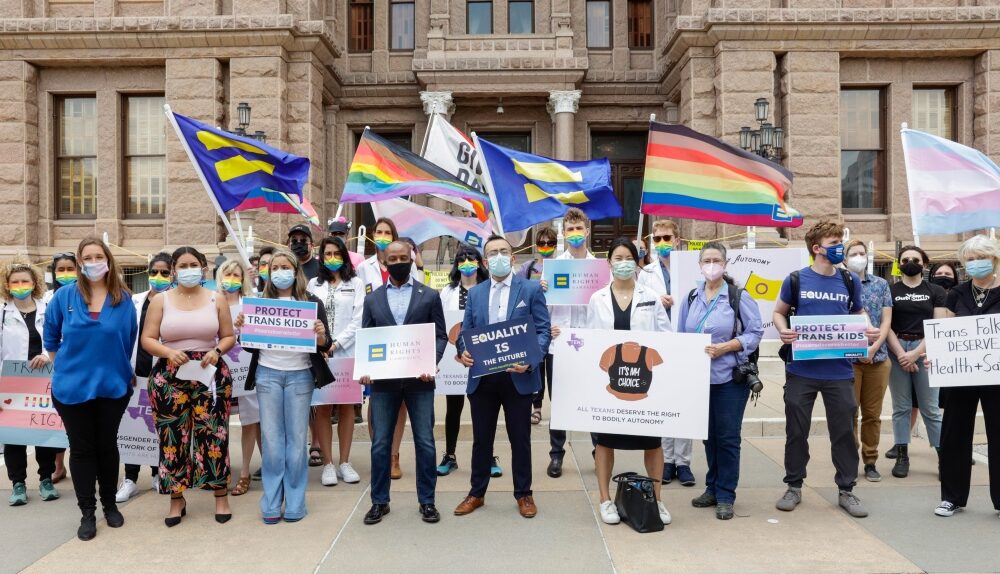CW: Mention of suicidal ideation
Transgender, nonbinary, and gender nonconforming individuals face innumerable barriers by simply existing in a world wrought with transphobia. The U.S. National Transgender Discrimination survey report on health and health care found that transgender individuals in the U.S. are over four times more likely to contract HIV than the national average and are over 25 times more likely to have attempted suicide. Access to medical care—a human right according to article 25 of the United Nations Universal Declaration of Human Rights—is yet another obstacle in the fight for freedom of identity.
McGill is not a transphobia-free oasis either. In the past year, students have reported difficulty removing their deadnames from official university documentation and the Centre for Human Rights and Legal Pluralism allowed a trustee of a transphobic U.K. organization to schedule a public lecture. According to McGill’s Trans Patient Union (TPU), the unwelcoming environment persists across McGill’s health-care services in the form of limited access to hormone replacement therapy (HRT).
For individuals with intersecting identities, this fight can be especially difficult. Black transgender and gender nonconforming individuals face some of the highest rates of discrimination and violence. And TPU finds that those who are fat, disabled, or struggling with mental illnesses are more likely to be denied certain kinds of care.
“We spoke to a suicidal patient who was refused bottom surgery because their ‘mental state was not stable enough,’ even though their dysphoria about their genitals was a large factor that contributed to their suicidal thoughts,” said TPU’s external affairs coordinator, who asked to remain unnamed, in an interview with The McGill Tribune. “They ended up being denied the surgery and their mental health got worse afterwards.”
Financial stress poses another obstacle for those looking to access gender-affirming care. In a survey conducted by Trans PULSE Canada, 34 per cent of transgender respondents were living in poverty, compared to 13.5 per cent of all Canadians, a staggering statistic considering only 0.33 per cent of Canadians are transgender.
“Even for those trans patients who can afford to pay for uninsured care without going into debt, this is money they now cannot spend on a house, a car, retirement, et cetera,” the TPU external affairs coordinator said. “No one should have to choose between having retirement savings and getting medical care.”
Transgender health is rarely included in medical school curricula and gender-affirming procedures are considered elective, downplaying their often life-saving nature. Even those who can afford care often require coaching from someone who has been through the process already.
“Many people assume that poor funding of the health-care system is the main barrier to gender affirming care,” said the TPU external affairs coordinator. “But in reality, the main issue is that the medical system has made it their business to rigorously gatekeep who should and shouldn’t get to access medical transition.”
Many doctors require that patients be diagnosed with gender dysphoria before providing gender affirming care—a practice that undermines the recommendations of the World Professional Association for Transgender Health (WPATH) standards of care.
“The official DSM [Diagnostic and Statistical Manual of Mental Disorders] criteria for gender dysphoria misgenders trans people and presents medical transition as acceptable […] [only] because the alternative is that we would kill ourselves,” the external affairs coordinator explained.
Another kind of harmful rhetoric surrounding care suggests that those who undergo gender-affirming procedures will regret their choices. Not only is this false, but this viewpoint perpetuates transphobia and contributes to stigma surrounding what can be life-saving procedures.
“Detransition is not synonymous with transition regret. Many people who stop their hormones don’t regret having been on them and are still happy they got certain surgeries. The regret rate for trans-related surgeries is less than two per cent,” the external affairs coordinator said. “When it comes to similar surgeries, like nose jobs, we respect patients’ right to bodily autonomy and believe that if they want the surgery and are well informed on the pros and cons, they should have the right to make that decision for themselves.”
Any McGill students interested in transgender-related health care can contact TPU on Instagram @transpatients or email [email protected] for one-on-one assistance. Trans patients interested in sharing their experience with the McGill and Montreal health care systems can contact [email protected]









